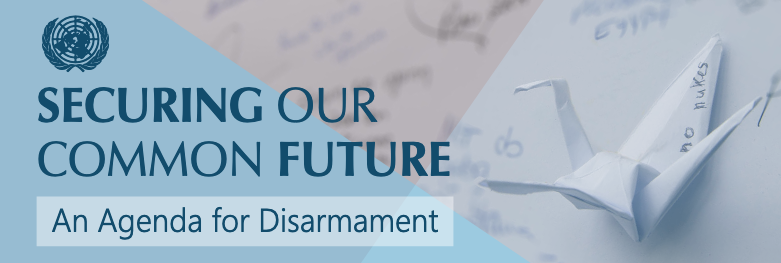UNODA Short Course Humanitarian Approaches to Nuclear Disarmament
Overview
While the term “humanitarian disarmament” does not appear in any international treaty or policy instrument, humanitarian implications and consequences of weapons have long been an issue of attention of the disarmament community. Humanitarian approaches to disarmament respond to the harm to people and/or the environment caused directly or indirectly from the use of weapons.
Historically, several categories of weapons have beenrestricted or banned due to their indiscriminate impact on civilians and communities, as well as their ability to cause superfluous or unnecessary suffering. Nuclear weapons are the most dangerous weapons on earth. Nuclear explosion and radiation can cause severe impacts on human physical and mental health; hinder humanitarian assistance; trigger profound social, economic, and political disruption; damagecultural heritage; and inflict devastating consequences on the natural environment.
This course addresses the humanitarian impacts of various categories of weapons, with a special focus on nuclear weapons. It discusses the immediate and longer-term devastating effects of the use and testing of nuclear weapons on people, the environment and sustainable development. The course also highlights the importance of humanitarian approaches in advancing multilateral negotiation processes in international security, including the adoption and entry into force of the Treaty on the Prohibition of Nuclear Weapons.

Objectives
Upon completion of this course, you will be able to:
- Understand the humanitarian effects of certain weapons, especially of nuclear weapons, on people and the environment;
- Describe the role of the humanitarian movement in the area of nuclear disarmament, including historic milestones and relevant international frameworks.
|
| Audience: The course is open to all interested audiences. |
|
| Components and Methodology: Each module takes approximately 20 minutes and can be completed at the learner’s own pace The course consists of two thematic modules:
The course is available in English and is held in the Disarmament Education Dashboard, thus participants need a computer or mobile device, with audio and reliable internet connection. No special software is required. |
|
| Certificate: Upon successful completion of thematic modules, including examination and course evaluation a certificate of completion will automatically be issued to the participant. |
Short-course Series
The UN Office for Disarmament Affairs Short Course Series aims at making available quality education material on disarmament, arms control, non-proliferation and issues cross-cutting with security, such as gender and development. The courses are targeted for and available to the general public at UNODA’S globally accessible e-Learning platform disarmamenteducation.org.
In line with the UN Secretary-General’s Agenda for Disarmament this short-course series aims to contribute to the implementation of the Sustainable Development Goals.


